Thinking My Way Through COVID-19. Obstacles to Attack
Since we retired over four years ago, we’ve had a huge amount of time on our hands. And yet, I’ve not done anything like as much reading as I did in the years of our madcap chase for freedom. The current COVID-19 lock down (called “shelter in place” in the US, or “circuit breaker” in Singapore) has changed that. I’m both awash with time, and unable to soak the time up with travel, so I’ve started picking up the books again. I’ve mostly re-read some of the books which had the most influence on me, and have just started on Ryan Holiday’s The Obstacle is the Way. It’s got me thinking.

The book is sub-titled “The Ancient Art of Turning Adversity to Advantage” and it takes a modern look at a way of age-old thinking. The basic message is this: the strongest, most successful among us have achieved their status not through luck, or by deliberately avoiding difficulties, but by tackling the obstacles life threw at them head-on, finding ways to use their blockers to their advantage. The message rings true to me. Before our last few motorhome tours, Ju downloaded episodes of Radio 4’s Desert Island Discs for us to listen to as we drove. Each episode is a gently intimate interview with someone famous, ostensibly asking them which music they’s take with them if they were stranded alone away from family and civilisation, but in reality it’s a way for us to peek under the veil of their pubic persona. What’s striking is the level of adversity these individuals had often faced: abusive parents, poverty, addiction, rejection, intolerance, the death of loved ones, physical or mental illness, violence. All of these obstacles were eventually overcome, and it seems to me these folks had become who they were because of adversity, not despite it.
This also rings true in my own life, albeit in a much, much smaller way. When we were chasing our own goal to become financially-free, we realised we’d have to tackle a number of our own (relatively speaking minor) obstacles. I’d left a big corporate company a couple of years beforehand to go travelling (we both worked there). I was burned out at the point I left, and really (really) didn’t much want to go back into what I felt was a toxic environment. However, within a couple of weeks of landing at home and installing ourselves in a rental house, an offer came in to return, back to the exact same office. Not just that, but I could also go back as a contract worker, which meant most of our income would be through self-employment. The obstacle in this case was fear, I think: would the place break me again? Would my skills be sharp enough after two years on the road? Would we make a mess of setting up and running a limited company’s accounts? Could we mentally cope with being self-employed, with no job security (I could be, and was at one point, given a week’s notice), no sick pay, no pension, no holiday pay (although we did have a safety net: we had Ju’s salary plus income from two houses we used to live in). I could be forced to work away from home for months at a time. The financial pay-off was potentially huge: if we could keep winning new contracts, we’d take home roughly double the income of an employee. In the end we had an (almost) uninterrupted string of local contracts, which enabled us to retire after only two additional working years. There was also a secondary pay-off: by overcoming our various fears involved in going back and going self-employed we became far more confident, both as individuals and with our own early retirement plan (which involves running our finances as though we’re a small business).
We faced similar obstacles with investing. We didn’t understand the stock or bond markets. We’d never bought a house as an investment, only as a place to live (and we’d definitely never bought a butcher’s shop under auction conditions). We’d little idea of how pensions worked. Again we were afraid of getting it wrong, of losing our money, of feeling stupid, of falling foul of some unknown law, of failing. In this case the obstacles were lack of knowledge and experience, and the fear these in turn created. By reading and studying others, we gained enough understanding of the technicalities of how each of these investments worked, and the behaviors we need to develop to manage them effectively, which in turn allowed us to assess more dispassionately the various risks we’d face. By building knowledge and facing the obstacle of fear we hardened ourselves to the problems inherent in being landlords, and owning and self-managing stock funds, bonds and personal pensions. We also started to understand how lucky we are these risks were even available to us: risk = reward, at least it has for us. Investing risks created huge personal opportunities, to enable us to stop working aged 43, and to enjoy the enormous luxury of being able to travel freely (until COVID-19 came along!).
So, what’s all this got to do with the COVID-19 pandemic we’re currently living through? Well, it seems to me the situation can be broken down, and thought of in terms of the obstacles it places in front of us. Different people face different obstacles of course, and some are facing far bigger boulders in their path than Ju and I. Most of us will be feeling some level of personal challenge though. Some are more vulnerable to the direct effects of the virus itself, and are being forced to shield away from all outside contact, effectively becoming temporary prisoners in their own home, with themselves as their own wardens. Some have been furloughed from work or their small business has been forced to close, with an associated loss of income and identity. Some have to carry on working, and are exposed to a greater risk of infection as a result. All of us face uncertainty, anxiety and fear. Rather than simply accepting these deeply unpleasant sensations, is it possible that we can take these obstacles and find ways to attack them, to use them to become stronger, better versions of ourselves?
The short answer is: I don’t know. It’s very difficult to see through the fog of fear we’re being smothered in each waking hour. Understandably, our government (like most others around the world) is using our instinctive fears to keep us inside our homes. Our human instinct to focus on negative information also leads the attention industry (the news) to feed us endless fear-inducing dramatic articles. In the face of fear we tend to freeze. I know I have. I’ve rationalised this with the fact doing nothing is the most significant thing my government and society demands of me at the moment: stay at home, protect the NHS, save lives. That’s a cop-out though I know. I can’t live my life with the single aim of not getting infected with a virus, not for long anyway, I need to see COVID-19 for what it is to me personally and seek ways to attack the obstacles it places in my path.
From an outside perspective the biggest obstacle to me and Ju might be the fact we’re unable to travel; this is predominantly a travel blog after all! However, I’m personally not feeling a problem with this restraint (I know lots of you reading this will feel very differently). Ju and I have spent over four and a half years on the road in the past nine (this map shows where we’ve been over the course of 7 tours). While there are plenty of folks who’ve spent far longer than us wandering the world, for most people 55 months is quite some time. And that’s how it feels to me personally. Yes, I’ll miss the opportunity to run 50 miles across the Southern Upland Way in Scotland next weekend, or to spend time in the spirit-lifting Alps or the Norwegian fjords this summer. We’ve not toured much of the UK yet, thinking we’d save it for when we can’t easily tour abroad, and maybe we’re approaching that time, at least for a few months? But no, I can’t claim the travel constraint to be a significant obstacle to me. I’ve done, seen and learned an awful lot on the road (in particular from some of the things we might have preferred not to see: life in the poorer countries, concentration camps, mass graves and so on). I’ve long known I needed to find something else to bolster the time we’ve spent travelling: hence writing this blog, self-publishing The Motorhome Touring Handbook and the long distance running, which I can do anywhere. I think Ju faces a slightly bigger challenge with being unable to head abroad, perhaps until some time in 2021, but for me (from an entirely selfish perspective I accept) I’ve other mental fish to fry.
As usual, I’m using writing this blog post partly to work through my feelings, so I’m trying to delve inside as I type. My feeling is the biggest obstacle to me at the moment isn’t COVID-19 at all, but is a long-standing question of what I’m doing with my life. Hmmm, that’s a thought. I’ve been feeling a fair bit of fear these past few weeks, and I could have been focusing in the wrong place the whole time. I’m 47. The ONS life expectancy calculator tells me men of my age will live to 84 on average (for Ju it’s 87). If COVID-19 keeps me under lock-down for an entire year (which we all know it won’t, the peak is already reached and the economy will force the world to re-open), I’ve still got 36 years left to enjoy, maybe more if I can stay healthy (I’ve a 10% chance of living to 98, over fifty years of life!). COVID-19 is likely, in purely time terms, to be a blip in my life, an important event but not life-defining. Is this COVID-19’s gift to me: to force me to finally confront this question? If I can use this exceptionally quiet time to work through the problem once and for all, or at least to uncover a way forwards for the next few years, I’ll come out of this enriched.

That’s not to say COVID-19 presents no obstacles at all to me. The predicament my parents are in is the biggest real challenge for me. They both have chronic health conditions which, coupled with their age, increases the probability the disease would cause them significant problems if infected. They realised this well before the government advised shielding (my Dad only received his advice letter a few days ago, six weeks after returning home from their mobile home in Skegness and locking themselves in the house). Even if they never catch the virus, their quality of life is likely to be been significantly impaired for several months, possibly more than a year, and they’ll have their own very personal view of the fears and frustrations they face. The precise nature of the challenge to me personally isn’t clear though. Ju and I are both relieved to be back in the UK and able to help support them through shopping, sorting tech problems and just showing a friendly face stood down the driveway each week. The sense of being ‘trapped’ I might have expected to feel some years back isn’t there (it might come further down the line, who knows). This particular virus is just another health problem on top of all the other problems they’ve faced in their lives (health and non-health), and in having to face those they’re perhaps much better mentally prepared to deal with this threat than many. So, how is their enforced shielding a challenge to me personally? Hmmm. I think it’s a fear-taming challenge really. If they were to get the disease I’m not sure how well I’d cope. But that fear pre-dates COVID-19, so perhaps there is no new challenge here (again speaking only for myself, not for them, my family or Ju)?
What else? The lack of social contact’s an obvious challenge. I’m an introvert and I’ve always found writing to be easier than speaking, even with only one or two people in the conversation. I find I need some face-to-face social interaction though, even though I spend most of my time wandering about inside my mind (a helpful trait for long-distance running, miles can pass without me realising). I’m lucky to live with Ju, we can talk through how we’re feeling, bounce off each other, air ideas and avoid them festering and have a laugh (thank you Gogglebox). I do need some ‘outside’ interaction though: a weekly meet-up with a mate, a run or two a week with club-mates, a nip into the pub of a Saturday afternoon or an hour in the sun being befuddled by the scoring at our town’s cricket club. I can sense something going on in my mind, a gradual closing down, a kind of mental hibernation. I don’t know the answer to this, but it’s helpful for me to write it down and to at least accept I have this problem. Social media is a poor substitute for the real thing I think, and usually leaves me feeling more fed up than uplifted with exposure to more political arguments or even more bad news, neither of which seem helpful. Video calls are better, but are still awkward and, to a degree, feel cold. I need to think this particular issue through.
The ‘ancient way of thinking’ Ryan discusses in The Obstacle is the Way is stoicism. It’s a philosophy which has been around for a couple of thousand years and which I try (and often fail) to follow. It’s a reasonably simple way of looking at life, but simple doesn’t translate to ‘easy’. My dad’s a natural though. For example, when asked how his health is he typically replies “I’m fine, it’s nothing a bullet wouldn’t fix”. That’s how he handles all problems in his life: he’s alive, whatever problems come his way, he’ll find a way to handle them. Re-reading this post it rambles on a little (!) but the points I’m trying to make are that I’ve found it helpful to think about this current situation in terms of the obstacles it creates, it’s given me some way to structure my thoughts. I have to say it’s also been very useful to actually write things down (another aspect of stoic thinking: to write down how you feel each day, which I don’t currently do); I feel much calmer and steadier now I’ve done so.
If you fancy reading The Obstacle is the Way, it’s pretty cheap on Kindle (less than £2). At the moment you can also read thousands of books and magazines for free for 2 months with Kindle Unlimited too.
Cheers, Jay


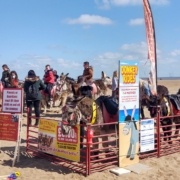
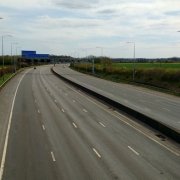
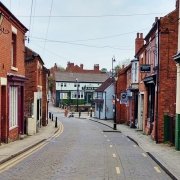
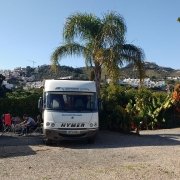
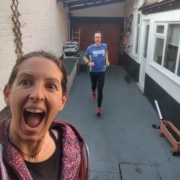


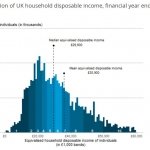
Great post Jason. I recently read Factfulness, as recommended by you and others. I have found the ideas contained in it to be very helpful in understanding the pandemic and what is going on in the media.
Thanks Paul – I find myself getting Factfulness off the shelf every now and again just to remind myself what it says – very useful as you’ve said. Cheers, Jay
Thank you for writing that, it has helped clarify similar thoughts I have been having.
I always look forward to your blog which presents so much more than just a travelogue.
I travel on my own now in a new van brought just before the virus struck.
I was away in the South of France and had to cut short my plans and head for the port in one mad dash much like you described in you earlier post.
You continue to be an inspiration both of you even when you are not on the road.
Thank you.
Regards
Colin
Thanks Colin, take it easy fella, Jay
This may help, or it’s an idea that can be adapted.
Rosie’s cousin Sylvia is alone now, but she has 3 children. She has self isolated rigorously for at least 6 weeks so far, at 80 she feels vulnerable.
Her children have worked with her to give her some real contact time (with them) by doing this:
They run a few errands for her, they do her shopping, from time to time they cook her home made meals, and when required re-set her iPad or phone for her. On the days when the weather is fine they in one’s or two’s maximum meet her in the rear garden where chairs are set out at 3m distance, they stay and chat for 20-30 minutes which is all she wants. The rest of the day she thinks on the conversation she has had, it means a lot. They all feel it’s proper contact without putting her at any but the most minute risk.
Rosie speaks with her 3 or 4 times a week, she says she loves these visits and understands that her children are putting themselves out for her, makes her feel good.